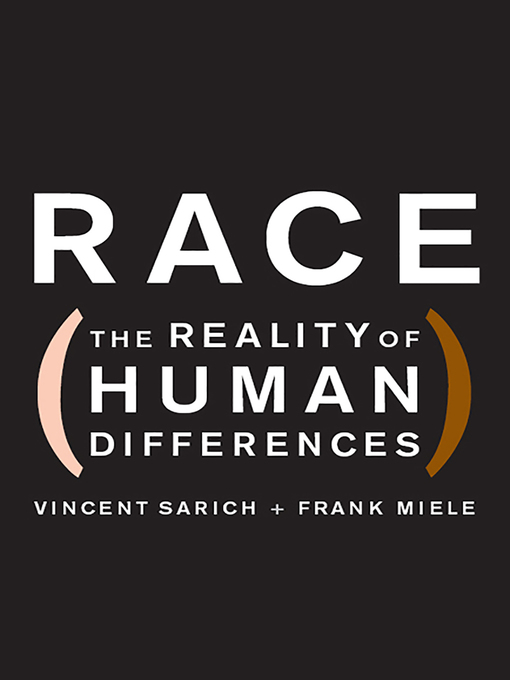-
Creators
-
Publisher
-
Release date
April 28, 2009 -
Formats
-
OverDrive Read
- ISBN: 9780786738212
-
EPUB ebook
- ISBN: 9780786738212
- File size: 3108 KB
-
-
Languages
- English
-
Reviews
-
Publisher's Weekly
January 12, 2004
Sarich, a Berkeley emeritus anthropologist, and Miele, an editor of Skeptic
magazine, cannot resist calling the current view that "race does not exist" a "PC dogma." They make cogent, if not convincing, arguments of their case in three areas. Race as a concept, they argue, considerably antedates colonial Europe, presenting such examples as an "Egyptian tomb with four races" (as one caption calls a tomb painting) that may point up "awareness" of difference, but whether that awareness correlates to concepts of "race" as currently defined remains unproven. Several chapters are heavy going on DNA-based research into the origin and differentiation of Homo sapiens
, here interpreted as branching off from the other hominids recently enough to make differences among people very minor but, in the authors' view, significant. They move from the Human Genome Project into their final section, in which differences in intelligence are said to correlate to a concept of race (but are not
said to be a justification for discrimination). This last argument is predicated on what will seem to many readers an excessive faith in IQ tests. Nevertheless, the book lacks vitriol, other than that needed to fuel the skeptic's attempt to debunk.
-
Loading
Why is availability limited?
×Availability can change throughout the month based on the library's budget. You can still place a hold on the title, and your hold will be automatically filled as soon as the title is available again.
The Kindle Book format for this title is not supported on:
×Read-along ebook
×The OverDrive Read format of this ebook has professional narration that plays while you read in your browser. Learn more here.

